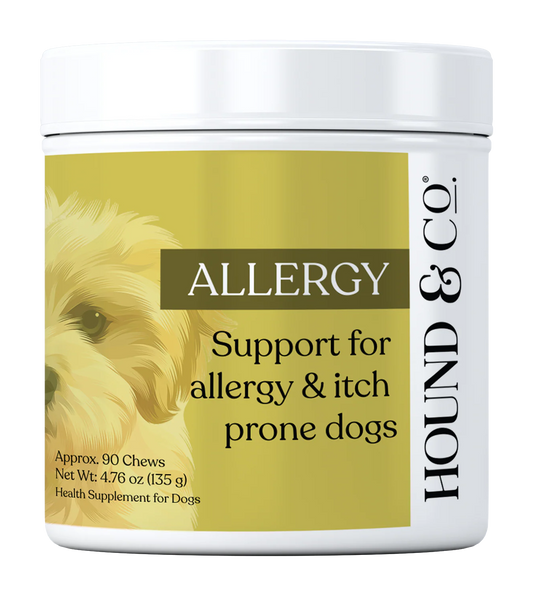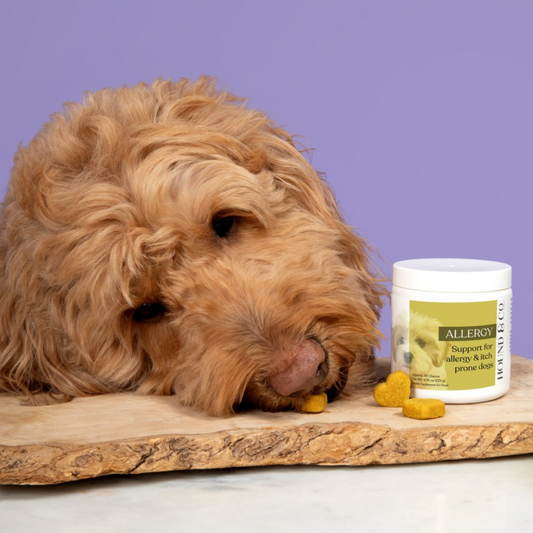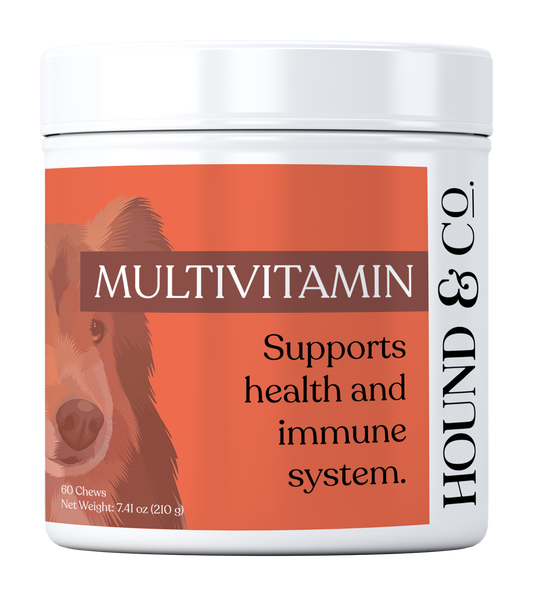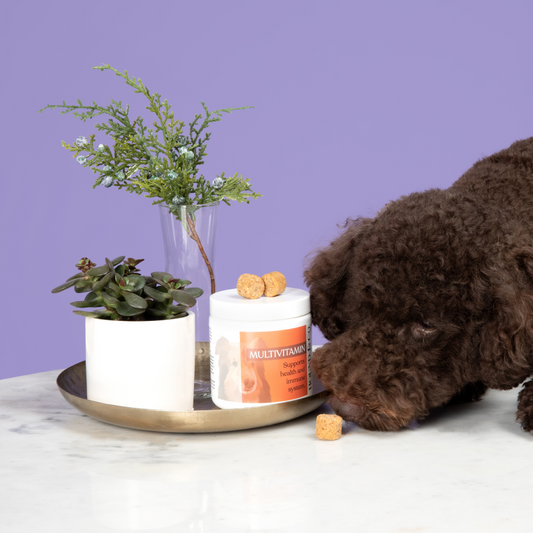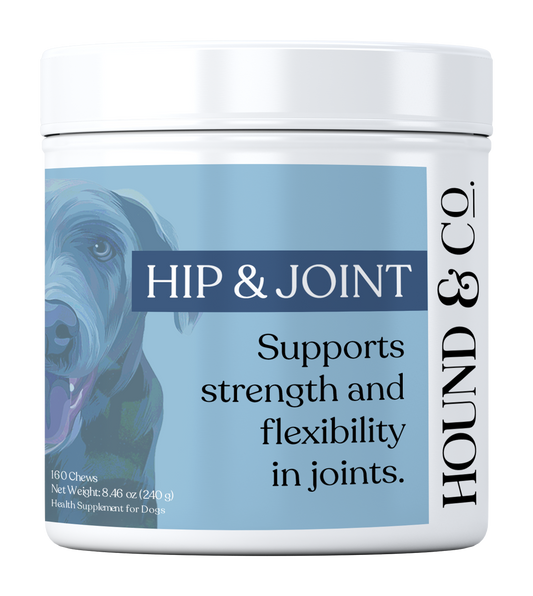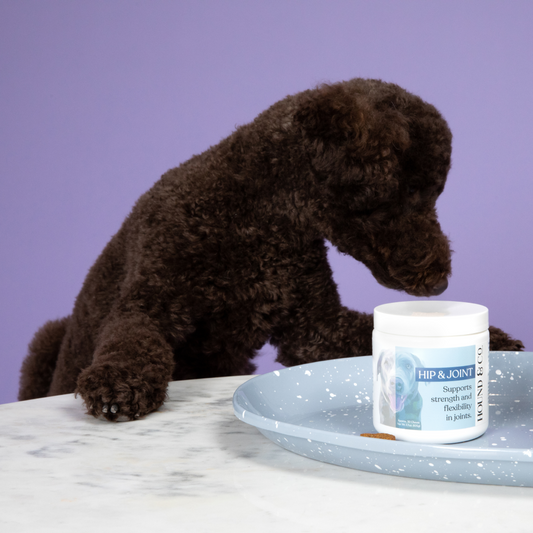Scratch No More: Natural Solutions for Your Dog's Itchy Skin Woes

Vet Reviewed by Dr. Jacob Klos, DVM

Itchy skin can be a bothersome issue for our furry companions, leading to discomfort and restlessness. While there are various causes of itchy skin in dogs which we dove into in our last article, exploring natural remedies can provide relief without resorting to harsh chemicals. In this article, we'll delve into five natural solutions to help soothe your dog's itchy skin and alleviate their discomfort.
-
Oatmeal Baths:
Oatmeal is not just a breakfast staple; it's also a fantastic remedy for relieving itching in dogs. Rich in compounds that have anti-inflammatory properties, oatmeal can effectively calm irritated skin and provide relief from itching. To prepare an oatmeal bath for your dog, finely grind oatmeal and mix it with warm water until it forms a soothing paste. Gently massage this mixture onto your dog's skin, allowing it to sit for several minutes before rinsing thoroughly. Regular oatmeal baths can help hydrate dry skin and soothe inflammation, promoting overall skin health.
-
Coconut Oil:
Coconut oil is a versatile remedy known for its moisturizing and antimicrobial properties, making it an excellent option for soothing itchy skin in dogs. When applied topically, coconut oil forms a protective barrier that helps lock in moisture and prevent further irritation. Additionally, coconut oil contains lauric acid, a fatty acid with anti-inflammatory effects that can help reduce redness and itching. To use coconut oil, simply apply a small amount to your dog's affected areas and massage gently. Regular use of coconut oil can help nourish your dog's skin and alleviate discomfort associated with itching.
-
Apple Cider Vinegar:
Apple cider vinegar is a natural remedy that has been used for centuries to treat various skin conditions in both humans and animals. Thanks to its antibacterial and antifungal properties, apple cider vinegar can help alleviate itching and soothe irritated skin. To use apple cider vinegar, dilute it with water and apply it to your dog's skin using a spray bottle or cotton pad. Be sure to avoid applying vinegar to open wounds or sensitive areas, as it may cause stinging. With regular use, apple cider vinegar can help restore your dog's skin's natural pH balance and promote healing.
-
Omega-3 Fatty Acids:
Omega-3 fatty acids are essential nutrients that play a crucial role in maintaining healthy skin and coat in dogs. Found in fish oil supplements, omega-3 fatty acids have anti-inflammatory properties that can help reduce itching and inflammation associated with skin allergies. Incorporating omega-3 supplements into your dog's diet can help support their skin health from the inside out, promoting a shiny coat and reducing the frequency of itching episodes. Consult with your veterinarian to determine the appropriate dosage of omega-3 supplements for your dog based on their size and individual needs.
- A Balanced Diet: A nutritious diet plays a vital role in maintaining your dog's overall health, including their skin and coat condition. Ensure that your dog's diet is rich in high-quality protein sources, essential fatty acids, vitamins, and minerals to support optimal skin health. Consider incorporating whole foods like lean meats, fruits, vegetables, and grains into their meals to provide a diverse range of nutrients. Additionally, staying hydrated is essential for maintaining healthy skin, so be sure to provide your dog with access to fresh, clean water at all times.
Soothing your dog's itchy skin naturally requires a multifaceted approach that addresses both internal and external factors. By incorporating natural remedies like oatmeal baths, coconut oil, apple cider vinegar, omega-3 fatty acids, and ensuring a balanced diet into your dog's routine, you can help alleviate their discomfort and promote overall skin health. However, if your dog's itching persists or worsens despite these interventions, it's essential to consult with your veterinarian to rule out underlying medical conditions and explore additional treatment options.







